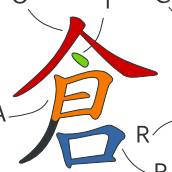Sick note
Here's one from the entrance to my building.
1) What has happened to the writer of the note?
2) What are readers asked to do?
3) What job do you think the writer does?
4) What's happening at the end of the second line, I can't figure it out?
5) What information did I crop from the bottom?














23 Comments
Recommended Comments